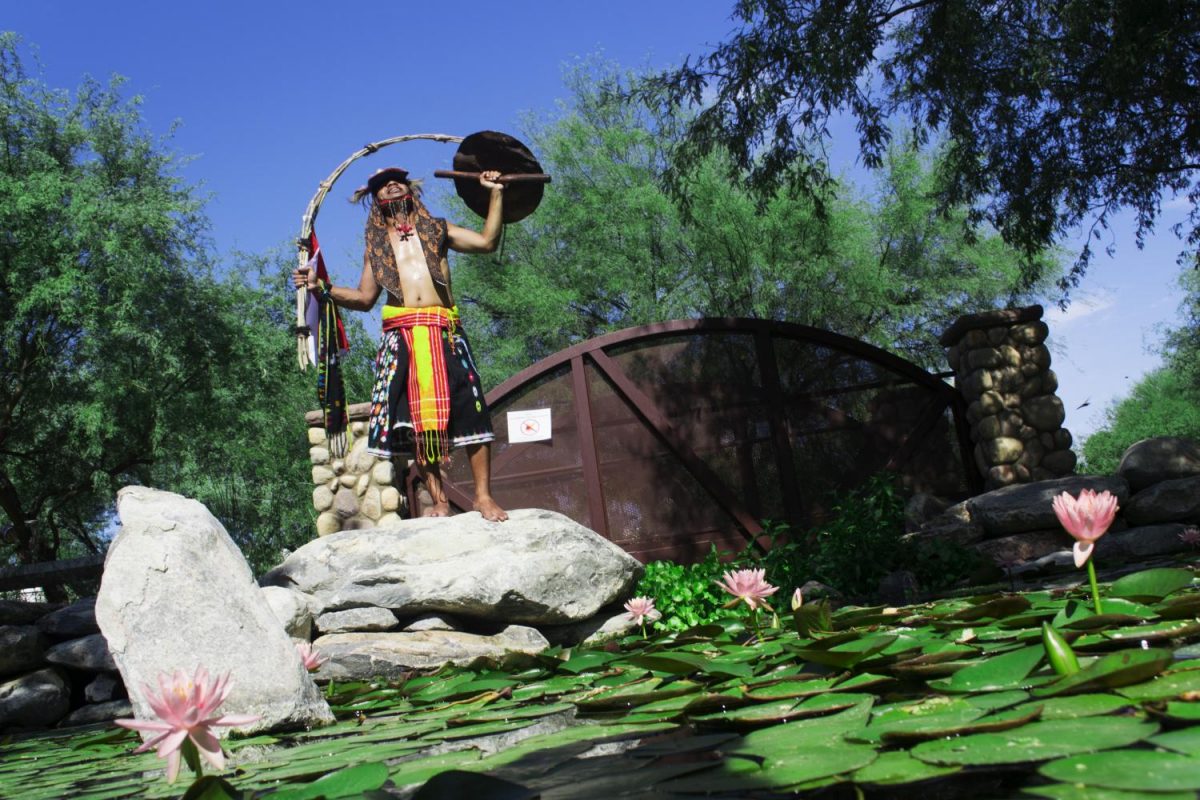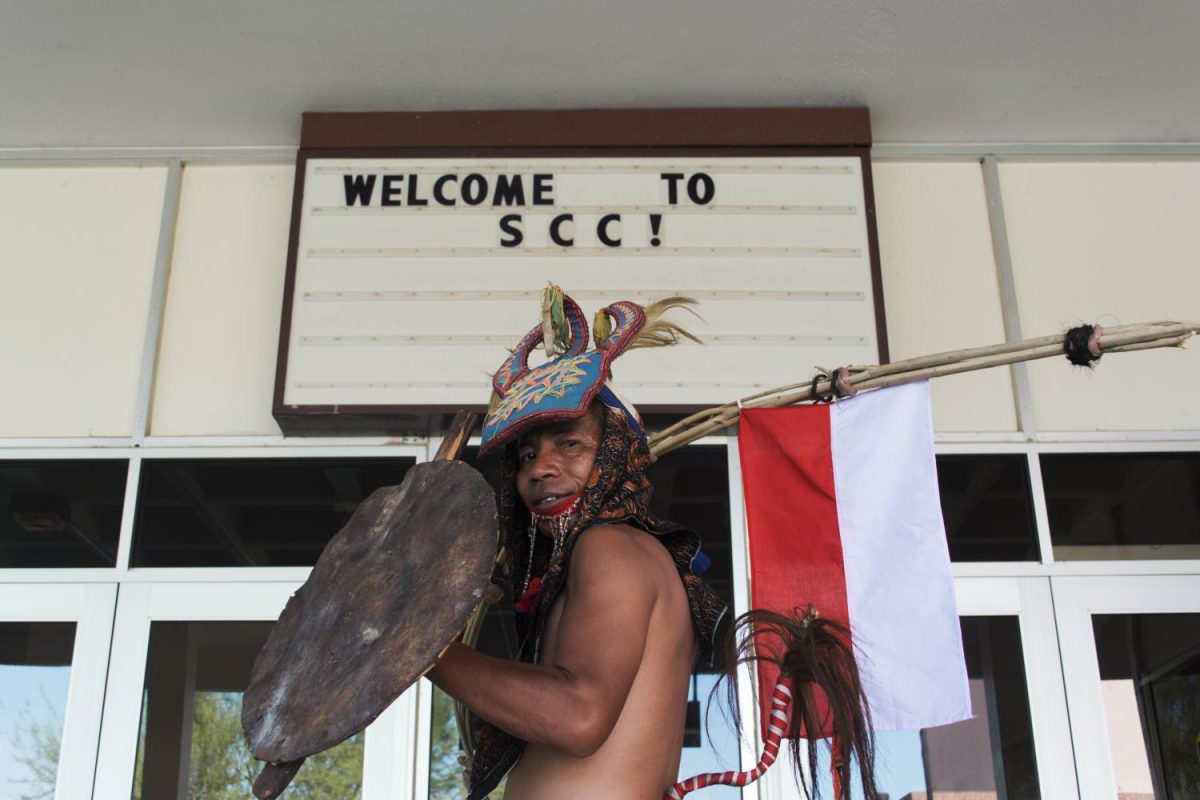A “Plastic Man” on a mission
Stefan Rafael standing in Two Water Circles on Scottsdale Community College campus
September 26, 2017
At 49 years old, “Plastic Man” is hoping to make news in a different country and a very different culture.
Stefan Rafael is from Komodo, Flores, Indonesia in Southeast Asia.
In 2008, he started to conduct a project for solving marine pollution. He set out to clean a beach that contained plastic trash and there he gained the nickname “Plastic Man”.
Rafael has been a very popular environmentalist and a kind of local celebrity figure in Komodo.
Rafael was born in 1968 in Flores, Indonesia. He has had an ordinary life, but an extraordinarily successful career.
In July his American adventure started when he got his chance, albeit at a slightly older age, to study business accounting at Scottsdale Community College.
Rafael is in the Community College Initiative Program with 15 other students. The CCI program is a one-year initiative to provide exchange students with new leadership skills and cultural experiences.
Among the CCI students, Rafael has been voted among his peers to have the most interesting life story and culture.
Rafael worked in different lines of employment between 1988 and 1993, including cleaning services and quality control and sold a local daily newspaper in Bali, Indonesia. In 1993 he studied marine life and became a Marine conservation teacher at Vocational Marine High school, Stella Maris in Komodo, Indonesia.
Now, he is a CCI student at Scottsdale Community College sharing in one of the program’s most important specialties…culture.
Rafael is a member of the Manggarain culture that adopts a power slogan “Gendangn one, linkong pre’ang,” which means, “togetherness” in social life, farming and all aspects of life that should be carried out together.
This way of life subscribes to the philosophy that humanity and nature are interrelated and depend upon one another.
Rafael practices the notion of man and nature being interdependent seriously in his passion for the environment.
Each year, Manggarain tribes celebrate Thanksgiving in the middle of November, which they call Penti.
The celebration of Penti consists of five cultural events. Pedo Tenggeng: A ceremony to get rid of all of the bad spirits in this life; purification. Barong Wae: Thanks to God for the spring water that makes it possible for people, animals, and plants to live. Caci dance: The young people with cultural attributes like warriors dance as the winning army. Turuk Empo: The people thank their ancestors for providing land and welfare for the people. And last Sanda Lima: All people in the village sing and dance together all night and then welcome a new year the next day.
“I am very lucky in Arizona because [the] nature is wonderful here. Also, I can meditate here like I do in my home,” Rafael said.
Rafael wants to share his culture for the Manggarain with people from other cultures and for its continuity.
He believes the biggest treasure is to protect his culture for the next generation.
Even though his immediate surroundings and indeed his life has changed while in the U.S.-his culture still lives in everything he is exposed to.
“I am very happy for the American people’s reaction about my culture. They find my culture is very interesting,” Rafael said.
He believes every culture has a power.



